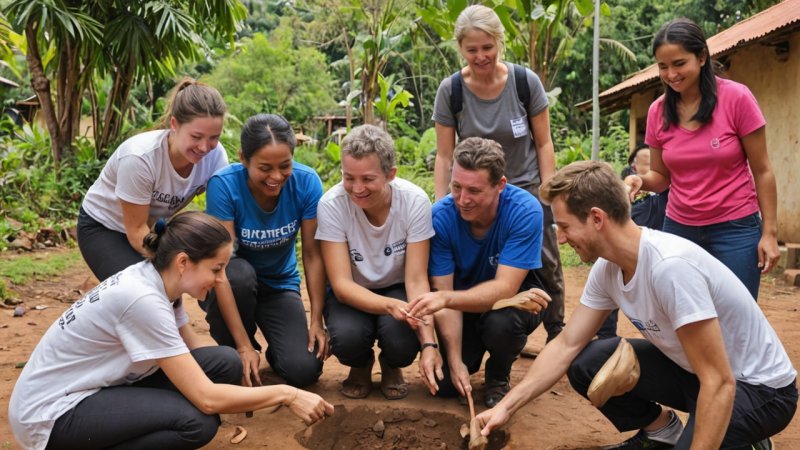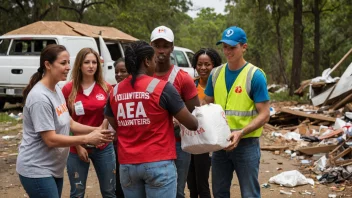Understanding Local Partnerships
Volunteering abroad can be a transformative experience, but its success often hinges on establishing strong local partnerships. These relationships not only enhance the impact of volunteer work but also foster mutual understanding and respect between international volunteers and local communities.
1. Building Trust and Rapport
Establishing trust is crucial in any partnership. Local organizations can help volunteers understand cultural nuances, ensuring that efforts are respectful and effective. Through local partnerships, volunteers can engage with the community in a more authentic manner.
2. Maximizing Impact
Local partners have firsthand knowledge of the community's needs. By working together, volunteers can focus on projects that address the most pressing issues, leading to more significant and sustainable outcomes.
3. Enhancing Cultural Exchange
Local partnerships facilitate cultural exchange, allowing volunteers to learn about traditions, languages, and local practices. This immersive experience not only enriches the volunteer's journey but also promotes cross-cultural understanding.
4. Providing Support and Resources
Local organizations often possess the necessary resources and infrastructure to support volunteer efforts. They can provide tools, materials, and logistical support, ensuring that projects run smoothly and effectively.
5. Ensuring Sustainability
Projects initiated by international volunteers can sometimes lack sustainability without local involvement. By partnering with local groups, volunteers can create solutions that are culturally relevant and have a long-lasting impact, ensuring that initiatives continue even after the volunteers leave.
6. Creating a Sense of Community
Volunteering alongside local people fosters a sense of community and belonging. Volunteers can become part of the community, learning to appreciate its struggles and successes, and contributing to a shared vision for the future.
7. Adapting to Local Contexts
Every community is unique, and local partners can help volunteers adapt their efforts accordingly. They can provide insights into what works and what doesn’t in their specific context, ensuring that projects are relevant and effective.
8. Encouraging Local Leadership
Empowering local leaders is essential for the success of any volunteer project. By involving local individuals in decision-making processes, volunteers can help build local capacity and encourage ownership of projects by the community.
9. Fostering Long-term Relationships
Building strong local partnerships can lead to long-term relationships between volunteers and communities. These connections can provide ongoing opportunities for future collaboration and support, extending the impact of volunteer work beyond a single trip.
10. Promoting Ethical Volunteering
Engaging with local partners promotes ethical volunteering practices. It helps prevent potential issues like volunteer tourism, where short-term projects can inadvertently disrupt local economies and social structures.
Conclusion
In conclusion, local partnerships are essential for effective and meaningful volunteer work. By fostering trust, enhancing cultural exchange, and ensuring sustainability, they help create a positive impact on communities while enriching the experiences of volunteers. Prioritizing these partnerships allows for a more ethical and responsible approach to volunteering, ultimately leading to a more profound and lasting change.






